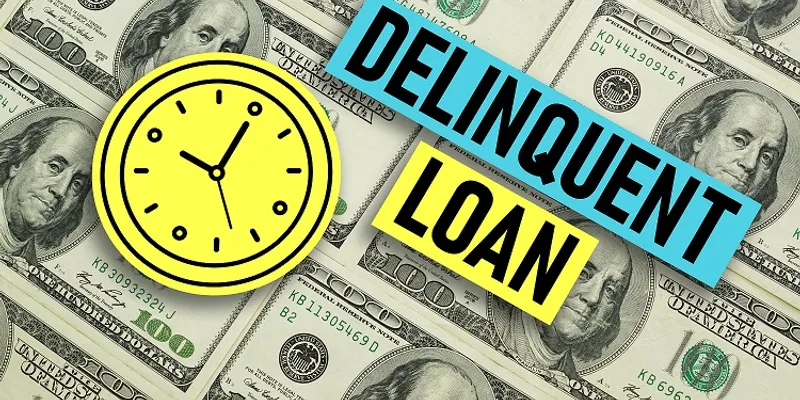
How to Bring a Delinquent Loan Back in Good Standing
Getting late on a loan payment will hurt your credit score. But getting your debts back into good standing doesn’t have to be an impossible task.
Depending on your lender’s policies, you may only be delinquent on a loan if you miss it by 1 day. It’s important to know the difference between delinquency and default, though.
What is a delinquent loan?
A loan is considered delinquent when it misses a payment. A loan can also go into default if it goes delinquent for too long, which has much more serious consequences.
The specific definition of a 연체자대출 can vary by lender and type of loan. However, a loan generally becomes delinquent when it’s more than 30 days past due. It may be reported to the credit bureaus at this point, which can have a big impact on your credit score.
Many lenders allow borrowers to catch up on missed payments before reporting them as delinquent. Lenders may also offer other options like deferment or adjusting your loan terms to help borrowers stay current.
Once a loan is delinquent, it’s typically sent to a collection agency. This can have a huge negative effect on your credit, and can make it difficult to get new loans in the future. It’s important to understand how your lender’s collection policies work before you take out a loan.
If you’re having trouble making your payments, contact your lender immediately to discuss alternatives. They may be willing to extend your repayment schedule or help you with a deferment if you can show them you’re working on getting back on track. They might even have resources like hardship programs to help borrowers who are struggling.
What are the consequences of being delinquent on a loan?
While the terms delinquency and default sound similar, they have very different meanings and consequences. Delinquency refers to the status of your debt when you miss a payment, whereas default is when you fail to honor your loan agreement in some way (for example, by missing payments or otherwise failing to honor your obligations under the contract). Both delinquencies and defaults can have serious impacts on your credit score and can make it harder for you to borrow in the future.
You become delinquent as soon as you miss a payment, even if it’s just by one day. However, most lenders don’t report borrowers as delinquent until they’re 30 days past due, which can give you a bit of breathing room to bring your loan current.
If you’re more than 30 days late, your lender may charge you a late fee and report your delinquency to consumer credit bureaus (and business ones if it’s a business loan). Your account can also go into default at this point, which is when the lender stops trying to collect on your debt.
If you’re in danger of going delinquent on a loan, be sure to contact your lender as soon as possible to discuss your options. They might have resources like a hardship program that can help you get back on track or might be willing to adjust your loan terms to fit your financial situation.
How can I avoid being delinquent on a loan?
When you borrow money, your lender outlines a timeline of when you must submit payments and when your debt will be paid off. If you miss one payment or fall behind on multiple payments, you could go delinquent.
Delinquencies and defaults can hurt your credit, which makes it harder to get loans, rent apartments or buy homes, and they may cause you to pay more in interest rates. Your credit score may drop by as many as 80 points or more for every month you’re late on a loan payment, according to NerdWallet.
Even if you miss just a few payments, you’ll probably see a big drop in your credit score (up to 125 points) after 30 days, when lenders typically report the late payment to the consumer and business credit bureaus. Defaulting on a 적금계산기 usually occurs after 90 to 120+ days of missed payments, though it’s possible for borrowers to avoid this stage by reaching out to their lender.
You might be able to negotiate a repayment plan, like making smaller, more manageable payments or deferring the debt until you can afford it. You can also try to boost your credit score by paying down other balances, getting a personal loan, or using a debt management program offered through a credit counselor. Alternatively, you might need to apply for bankruptcy protection, which can remove delinquencies from your credit reports after seven years.
How can I bring my loan current?
There are a few ways to bring your loan current, but it’s important to act quickly. If you know you’re going to miss a payment, try to contact your lender as soon as possible and explain what happened (like a loss of income). Lenders may have resources like a hardship program that can help borrowers get back on track. They’re also more likely to work with you if you talk to them before your loan goes delinquent or in default.
If you can’t bring your loan current, collection fees may be assessed, and state and federal tax refunds can be withheld to repay the debt. You may also lose your ability to take out additional credit, and the loan could go into foreclosure.
While delinquency is different from default, both can harm your credit score. However, if you make up your missed payments and avoid going further past due, your credit score should improve over time. It’s worth noting, too, that while getting a loan delinquent is bad for your credit, being in default is much worse.